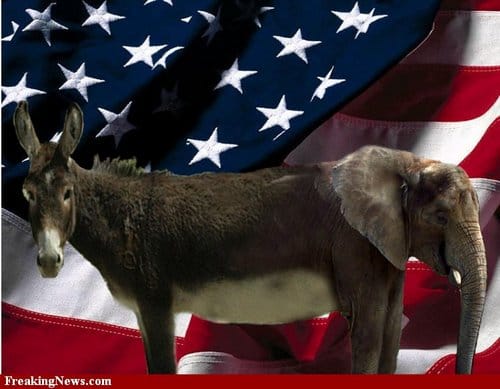Calls mount for open primaries in Pennsylvania


With abysmally low voter turnout in the closed primary elections held earlier this month in Pennsylvania, pressure is mounting to open the process to Independents.
On May 17th, Pennsylvania voters headed to the polls to cast their ballots in primary elections for county and municipal offices, school boards and judges. Or rather, more precisely, voters didn’t head to the polls to cast their ballots in the state’s primary elections. As local Patch columnist Tom De Martini wrote reflecting on the returns:
“Primary voter turnout is usually low, but Tuesday's showing at the polls was one of the worst I can recall since I starting casting ballots in 1979.”
One local CBS News affiliate felt it necessary to emphasize that, despite the low turnout, the results still count:
“low voter turnout was the theme for the day, even though a few key races were up for decision. A whopping 80 percent of voters bypassed the election, but the results still count.”
Pennsylvania is one of twenty states in which Independents and third party voters are prohibited from casting a ballot in the Republican and Democratic party primaries, according to a tally by The Center for Voting and Democracy. Roughly one million Pennsylvanians, about one in eight voters, are not affiliated with any party or are registered with a third party.
The abysmal showing in the primary elections by the state’s Democrats and Republicans is leading to increased calls for open primaries. In the above-mentioned column, De Martini closes by suggesting that “the Commonwealth should repeal the laws excluding independent voters from making their voices heard.” An editorial at PennLive comes to the same conclusion:
“Perhaps if there isn’t enough interest from Democrats and Republicans to vote in the primary, we should change the law to allow independent voters to cast their ballots to help boost turnout.”
Independents in the Keystone State appear to be growing increasingly frustrated with the Democratic and Republican parties, and a system that effectively disenfranchises them from the first round of voting.
“It’s time for an independent category in our political system. The two reigning parties have not been serving us well and do not deserve to continue their monopoly on public service,” wrote Stephen Hambric in an editorial for the Centre Daily Times. In an article for The Philly Post, Larry Mendte recounted his experience as an Independent voter on primary day, arguing that:
“It is time to open up the state to Independent voters and ideas. It seems contrary to the concept of democracy to keep anyone away from the polls in a statewide election.”
When faced with criticism of the closed primary system, its supporters in the Democratic and Republican parties often reply by stating that if Independents desire to vote in the primary elections, they can simply change their affiliation. Independents respond by pointing out that if the Democratic and Republican parties want publicly funded primary elections, these elections should not be effectively closed to the public. William Thomas, an Independent Pennsylvanian, makes this precise case in an angry letter to the editor of the Daily American. He writes:
“tax payers have to foot the bill for this affront to the American people’s guarantee to free and open elections. Since only registered party members can vote in these primaries, save the taxpayers some money and let each party hold and pay for their own candidate selections.”
The problem posed by Pennsylvania’s closed primary system is exacerbated by the fact that candidates for local and state offices often cross-file in both the Republican and Democratic primary elections, which can easily result in uncontested general election races (if an uncontested election can be called a race). One lawmaker in Pennsylvania’s House of Representatives, Democrat Eugene DePasquale, has proposed legislation that would open the system to allow Independents to vote in party primaries. "When you're cross-filing, you're essentially saying it's a nonpartisan election . . .So especially in those cases, there's a need for this," DePasquale recently told the York Daily Record. However, the bill has yet to receive a vote in the legislature.
Perhaps one might argue that if Independent Pennsylvanians are so frustrated with the Democratic and Republican parties, they can register their discontent by voting for Independent or third party candidates in the general election. But Democratic and Republican party activists work tirelessly to ensure that such candidates do not appear on the ballot. Last year, for instance, all of the third party and Independent candidates for statewide office were effectively purged from the ballot when Democrats and Republicans promised to contest every single signature on their filing petitions, threatening hefty fines for the candidates in question. Independent and third party candidates must gather nearly 20,000 valid sigantures to appear on the general election ballot. Democrats and Republicans are required to gather just 2,000 to appear on the primary ballot.
In this month’s primary election, Republicans nominated Vic Stabile for Superior Court Judge. Stabile is an outspoken opponent of political competition from outside the two-party system.
“Mr. Stabile led the charge to get Libertarians knocked off the ballot in 2008 and was recently quoted as being pleased by efforts to keep the Green and Libertarian Parties from appearing on the statewide 2010 ballot,” said the Pennsylvania Libertarian Party’s chair, Lou Jasikoff.
Independent Pennsylvanians have their work cut out for them.




